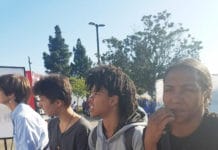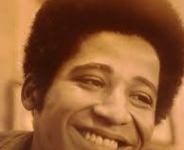Daily Archives: November 28, 2017
African court rules that Victoire Ingabire did not receive a fair trial in Rwanda
In 2010, Victoire Ingabire attempted to run for president against Rwanda’s Paul Kagame, but went to prison instead. The Rwandan Supreme Court ultimately sentenced her to 15 years. On Nov. 24, the African Court of Human and People’s Rights ruled that she did not receive a fair trial, that she had not denied or minimized the Tutsi genocide, and that her criticism of the government should have been allowed as part of her freedom of expression within Rwandan law.
Against carceral feminism, against using state violence to curb domestic violence
Cherie Williams, a 35-year-old African-American woman in the Bronx, just wanted to protect herself from her abusive boyfriend. So she called the cops. But although New York requires police to make an arrest when responding to domestic violence calls, the officers did not leave their car. When Williams demanded their badge numbers, the police handcuffed her, drove her to a deserted parking lot and beat her, breaking her nose and jaw and rupturing her spleen. They then left her on the ground.
Poverty skolaz take Doctors Without Borders tour, ‘become’ displaced persons from Sudan to Oakland
The rubber sides of the boat were like arms – thick, round, hard. “These are the boats refugees have to travel in. Men sit on the side, the women, children and elders in the middle, sometimes getting splashed and sick with the leaking gasoline from the engine because they are covering miles of ocean to go from one country to another.” The tour guide from Médecins Sans Frontières, known in English as Doctors Without Borders, was narrating the “Forced From Home” traveling exhibit of removal, imperialist wars and NGO and government abuse of indigenous bodies across the Global South.
How I survived 22 years of solitary confinement
“I” is “We” in Afrikan science. In terms of surviving 22 years of solitary confinement, “I/We survived” primarily because the indomitable spirit of our Afrikan ancestors lives on in each of our spirits. “We survived” but we were not unaffected. “We survived” but we did not leave solitary normal. “We survived” because we refused to be counted among the broken men. “We survived” because the repressive tactics and measures inflicted upon us by our captors bred a fierce resistance within us.

 Store
Store






